
Leave message
Can’t find what you’re looking for?
Fill out this form to inquire about our custom protein services!
Inquire about our Custom Services >>


































 Limited Edition Golden Llama is here! Check out how you can get one.
Limited Edition Golden Llama is here! Check out how you can get one.  Limited Edition Golden Llama is here! Check out how you can get one.
Limited Edition Golden Llama is here! Check out how you can get one.
 Offering SPR-BLI Services - Proteins provided for free!
Offering SPR-BLI Services - Proteins provided for free! Get your ComboX free sample to test now!
Get your ComboX free sample to test now!
 Time Limited Offer: Welcome Gift for New Customers !
Time Limited Offer: Welcome Gift for New Customers !  Shipping Price Reduction for EU Regions
Shipping Price Reduction for EU Regions
>
ACROConnect Workshop Series >
New Jersey Assessing Critical Bioreagents Workshop 


Join our scientific exclusive ACROConnect Workshop in New Jersey to discuss current trends and challenges in assessing Critical Bioreagents. Apply through the form below to connect with expert speakers from Bristol Myers Squibb, Wuxi Biologics, and fellow researchers!
Location:Princeton Innovation Center BioLabs, Princeton, NJ
Date & Time: October 24th, 2024, 2:00PM - 6:00PM
Food and drinks will be served, PLUS we will have raffles for ACRO's limited edition Golden Llama!
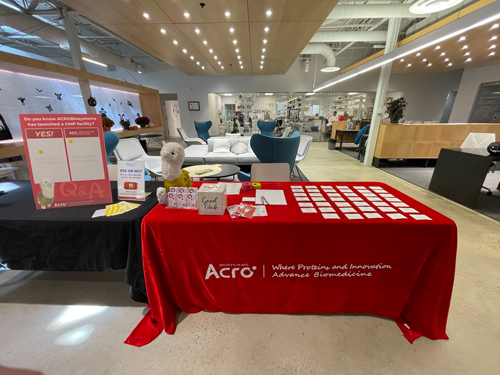
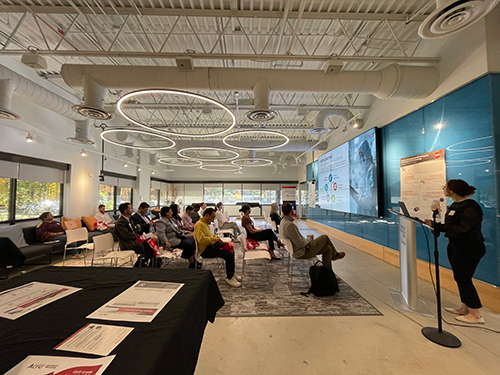
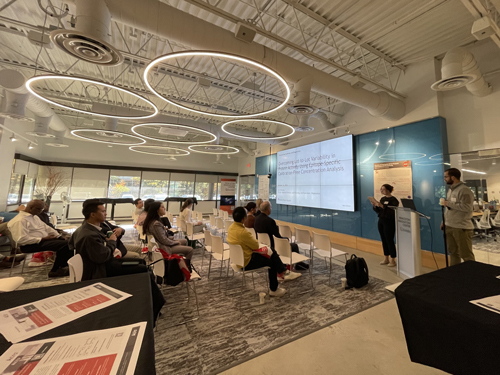
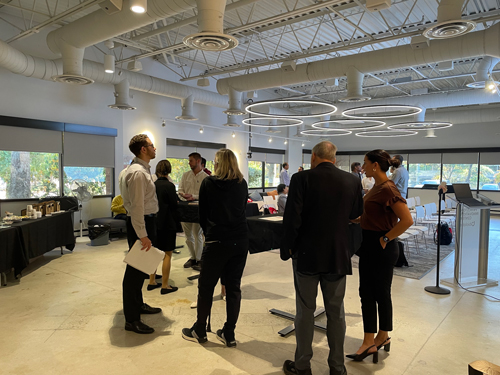
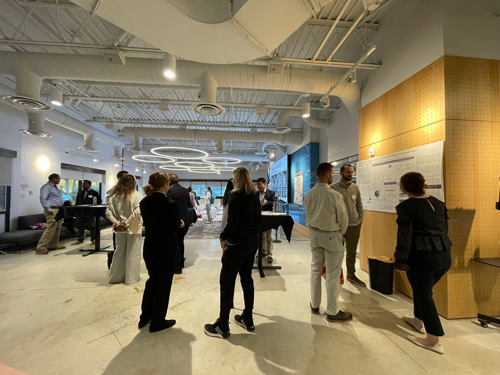
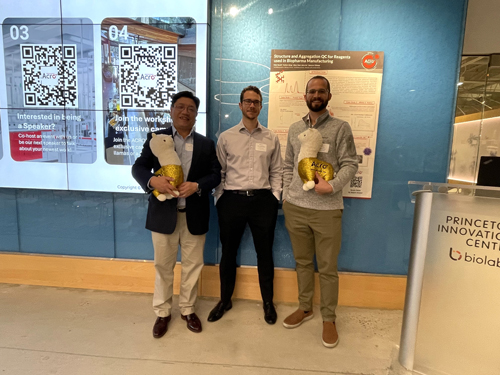

Ian Harvey, Ph.D.
Senior Scientist
Bristol Myers Squibb
Speaker Bio:
Dr. Ian Harvey received bachelor degrees in Biochemistry/Biophysics and Bioinformatics from Rensselaer Polytechnic Institute, followed by a PhD in Biochemistry/Biophysics and Structural Biology from Washington University in St Louis. Since joining Bristol Myers Squibb, Ian’s work has focused mainly on characterizing protein reagents to help develop high quality assays across multiple platforms for clinical trials. His talk today highlights a somewhat underutilized SPR method, calibration-free concentration analysis, and how this method may be preferrable to conventional protein concentration methods.
 Talk title:
Talk title:
Overcoming Lot-to-Lot Variability in Protein Activity Using Epitope-Specific Calibration-Free Concentration Analysis
 Talk abstract:
Talk abstract:
From delays for partial revalidation to inconsistent reported values between labs or clinical studies, protein reagent variability can impact a clinical assay’s lifecycle. We have postulated that a major driver of this variability stems from conventional methods of protein concentration determination, which cannot distinguish active protein species from functionally inert material. As an alternative, we have begun to use Calibration-Free Concentration Analysis (CFCA), an SPR technique, to exclusively measure the active concentration of reagents. Through two independent case studies (a cell-based biomarker assay and ligand-binding biomarker assay), we demonstrate that defining reagents by their assay-specific active concentration considerably decreases the observed in-assay variability between reagents compared to conventional concentration determination. The ability of the CFCA method to unify seemingly disparate reagent activities stems from the fact that it specifically measures the concentration of a folded epitope. Due to this, it shows further promise in studies where conventional concentration determination cannot be easily employed, such as reagent stability testing and quantification of individual components of a mixed calibrator cocktail.

Yunsong (Frank) Li, Ph.D.
Executive Director, US PD and DP Manufacturing
WuXi Biologics
Speaker Bio:
Dr. Frank (Yunsong) Li currently serves as an Executive Director, Head of US PD & DP Manufacturing at WuXi Biologics, based on Cranbury, New Jersey and King of Prussia, Pennsylvania. He oversees all WuXi Biologics development laboratories and Drug product manufacturing in the USA. Before his role at WuXi Biologics, Frank worked at Catalent, Merck & Co. and Amgen with increasing responsibilities.
Besides his current responsibilities at WuXi Biologics, Frank also serves as an Adjunct Professor in The Department of Industrial and Molecular Pharmaceutics at Purdue University,
Dr. Frank Li holds a Ph.D. in Pharmaceutical Chemistry from the University of Kansas, Lawrence, Kansas
 Talk title:
Talk title:
Ultra High-Throughput Developability Studies for a More Diverse Biologics Pipeline
 Talk abstract:
Talk abstract:
Abstract: Advances in drug discovery have brought increasing diversities to the biologics industry. With new modalities like bispecific Ab, bispecific Fab, minibody, nanobody, single chain variable fragments, and many other recombinant proteins being discovered, developability studies are being redefined as well. Well-established platform formulations developed for traditional mAbs often fail at stabling these new modalities. Thus, it is critical to enlarge the design space of chemical matrixes around the protein to determine whether it is truly developable in terms of manufacturing, formulation, and administration. We introduce ultra-high throughout developability studies to meet this challenge. By using 96 or 384 well plates for analyses, stress, and storage, our UHT developability package provides unique combinations of high level of automation, lowered cost of consumables, and accelerated timeline. With the UHT developability, high level of flexibility is achieved in study design from biophysical screening in 384 well plates, to stability screening in 96-well plates, and finally to drug product developability in minimized glass containers.

● Only qualified registrants will receive a confirmation email from ACROBiosystems.
● Admission to the workshop is granted only to those with a valid workshop pass or ticket.
● ACROBiosystems reserves the right for final interpretation of these terms.
This web search service is supported by Google Inc.







